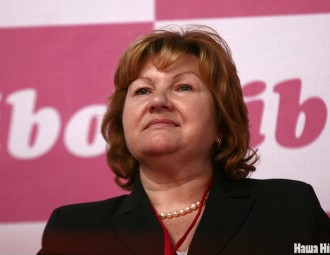Minsk and Moscow are to create common information space

Belarus and Russia will sign a document on common information space.
The document elaborated by the Belarusian Information Ministry and the Russian Ministry of Communications and Mass Media will be inked in Mogilev on 12 May, Belarusian Information Minister Lilia Ananich said during a session of the permanent seminar of the Union State Parliamentary Assembly on common information space on 11 May, BelTA has learned.
“The plan of action for 2016-2017 to build a common information space has been drawn up by the two ministries. It will be signed at the upcoming meeting of the Union State Council of Ministers in Mogilev. We believe it is important to have arrangements other than the agreement on cooperation in publishing,” the minister stressed. When talking to journalists, Lilia Ananich noted that a common information space has already been created thanks to the Internet. “However, it is very important to have agencies, both in Minsk and Moscow, willing to exchange materials, publish or broadcast partners' news,” the minister pointed out. Lilia Ananich added that the plan of action to establish a common information space touches upon the activities of the mass media and government bodies. “It contains some specific instructions. The document calls for a comprehensive coverage of events in Belarus and Russia and the process of building the Union State,” she emphasized. Lilia Ananich believes that Union State's and other media companies should be involved in the implementation of the plan of action. The minister also spoke about the new Union State project, the festival of regional TV companies of Belarus and Russia, scheduled to take place in Belarus this year. “We get very positive feedback about the project. The viewers, readers and listeners want to learn to navigate in the media space,” the minister added. “In Belarus, we have been thinking that the information space should serve to meet our country's development goals, promote the development of the Union State, and consolidate the efforts of the countries and peoples in addressing the most difficult tasks,” Lilia Ananich said.
-
03.01
-
07.10
-
22.09
-
17.08
-
12.08
-
30.09








































